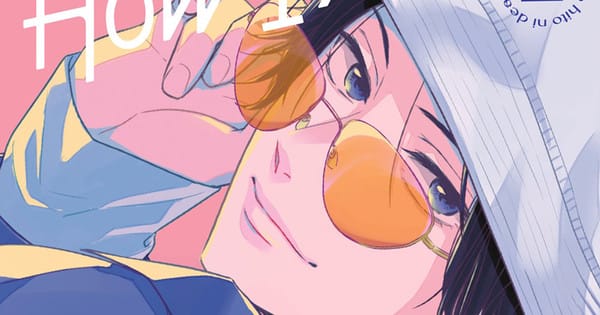
How I Met My Soulmate Quantity 1 Manga Evaluation
Anashin‘s first English-translated series, Waiting for Spring, may not have been anything overtly special in shoujo romance, but it was delightful and addictive to read. So far, that’s not quite true of her subsequent work, How I Met My Soulmate, although it’s still a good book. The setting this time is college rather than high school, and the heroine, Yuuki, is having a tough time feeling like she fits in socially. Yuuki moved from the countryside to the big city for school, and things don’t exactly meet her expectations. Mostly, that comes down to her having trouble meeting people, namely guys, and she’s feeling very lonely and a little bit sorry for herself. When she mentions it to her friend Sanae – who also came from the country but is acclimating a bit better – Sanae suggests that they try going to a club, and that’s where the story begins.
One of the greatest strengths here is Yuuki’s awkwardness. Even if you don’t relate to her as a character, her social clumsiness is recognizable and well-portrayed. She’s baffled by how Sanae, also from a (different) rural area, has managed to acclimate and adapt herself to the city, and she’s still carrying around a lot of habits that she knows might not be the best. It’s not that Yuuki can’t change or doesn’t want to; it’s more that she lacks true self-awareness, and that’s what draws Iori to her. Iori is three years older than Yuuki and in his third (of five) year of dental school. They meet at a club when he’s not in a good state, and Yuuki is instantly repulsed – and annoyed when Sanae says she knows better and gives Iori Yuuki’s number. After reconnecting under better circumstances, Iori quickly recognizes Yuuki’s naivete and seems to think he must take her under his wing.
We can see that there’s more to his offer to help her. Yuuki may not be the most self-aware human on the planet, but Iori’s in the same boat, possibly on purpose. Whereas Yuuki retains innocence in her actions, Iori may be deliberately distancing himself from his emotions. There’s no clear answer why, but we have some hints that bear keeping an eye on, chief among them the fact that he’s living in a spacious apartment and has to work multiple jobs to hold on to. He tells Yuuki that he lived there with his brother but says nothing more, implying that his brother isn’t there now. This begs the question of what happened to him and why Iori feels the need to stay in the apartment that he clearly can’t reasonably afford. Is he waiting for his brother to come back? Is it just because of memories? There’s more going on that Iori isn’t telling anyone, as we see from offhand comments made by his friends that imply that they don’t know either.
Both Iori and Seno, who come in halfway through the book, have some unknowns that make me question whether Yuuki should be involved with either of them. Seno was the boy Yuuki had a crush on in middle school, and when Iori sends his friend Hiro to a mixer in his place, she discovers that Hiro both knew and is still pals with Seno. Hiro’s version of Seno doesn’t seem to be the same as the one Yuuki knew, and this opens the door to questions of how well anyone knows another person. Was Seno the sweet guy Yuuki believed? Or the jerk Hiro tells her about? When Yuuki and Seno reconnect, one does seem more likely than the other, but the source has to be considered as well; after all, Seno isn’t necessarily going to admit to being a twit in front of the girl he claims to have a crush on still. Right?
As with Waiting for Spring (which Yuuki is shown reading in an early chapter), the action here is largely internal. That works better as the volume goes on, and Seno’s addition to the story helps to move the plot along. Yuuki’s personality comes across as far too trusting. Even though she talks a good game to herself, we can see her making the same mistakes as she made in the past and being oblivious to them. She has moments of self-awareness, but on the whole, she comes across as someone who may enjoy the act of being in love more than wanting a reciprocal relationship – something that’s not even on her self-awareness radar. Iori may be figuring that out about her, but he’s also fighting his attraction to her, making the romantic situation much messier than it might otherwise have been.
None of this is terrible, and Anashin shows a deft hand with the basics of romance manga. It’s hard to pinpoint what precisely doesn’t work here, but I think it comes down to Yuuki herself. Iori and Seno are more striking characters in what is ostensibly Yuuki’s story, and it often feels like they’re acting around her rather than involving her in the plot. That may be intentional, and it’s worth another volume to see how things develop.


